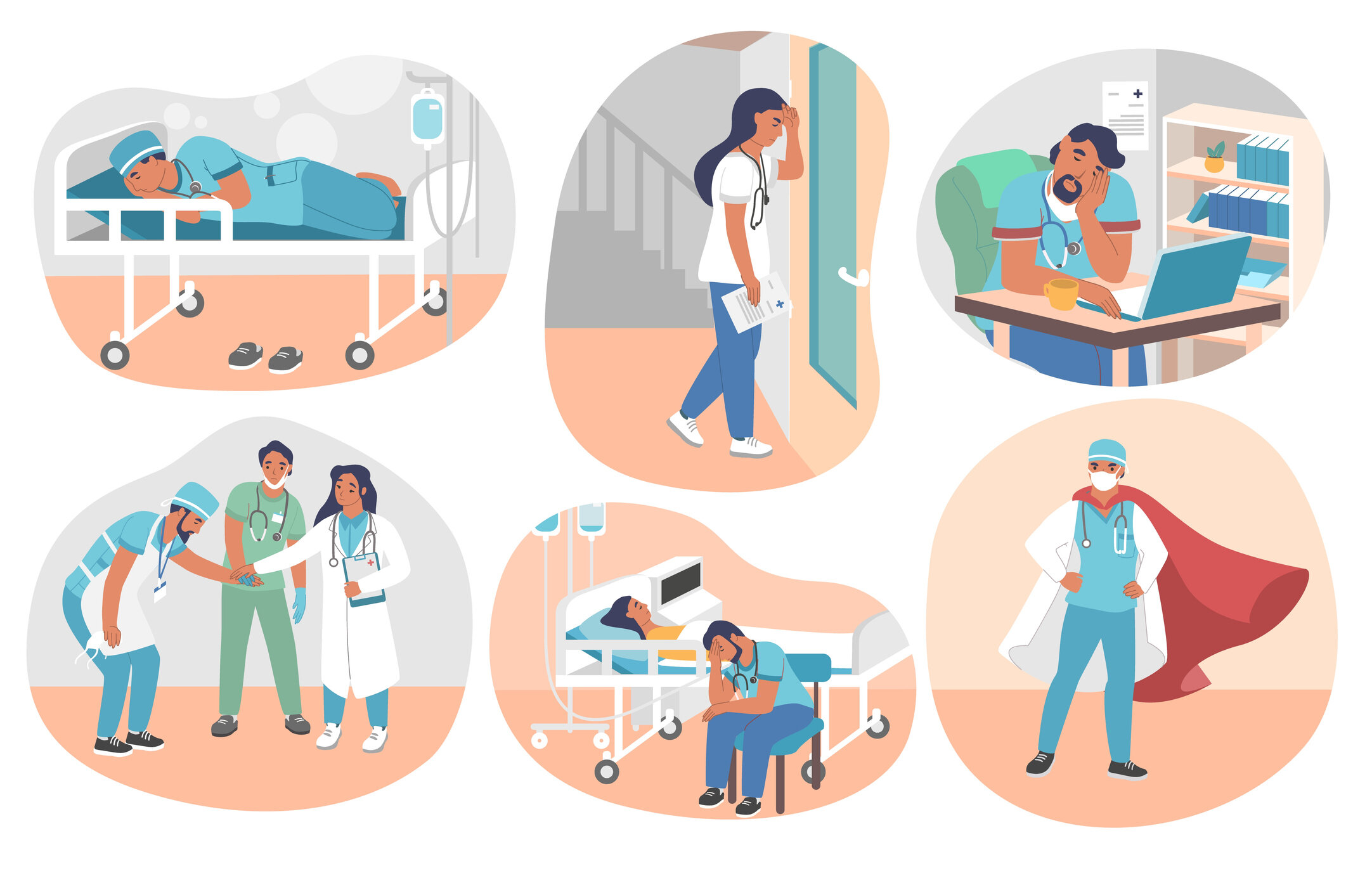How to Recognize Compassion Fatigue
Most of us are familiar with the term burnout, which we associate with feelings of frustration, fatigue, and anxiety resulting from working a stressful job for many years. Fast-paced work environments, repetitive tasks, lack of autonomy, and working long hours with few breaks can cause burnout.
Nurses dedicate their professional lives to helping others. This care often impacts their personal lives and wellness. Most of the time, nurses would say the field of nursing is extremely fulfilling. However, institutions are seeing increased reports of the opposite. Staff shortages, increased responsibilities, governmental regulations, other factors like public health crises like COVID-19 have contributed to burnout and overall distress.
Burnout has many negative implications on both a personal and professional level. Professionally, burnout can hinder job performance, change how nurses view their role and even put patients in danger. Personally, burnout affects emotional health, relationships, and overall quality of life.
The feelings of emotional and physical exhaustion nurses experience have been called "caregiver burnout." However, a better term for nursing burnout is "compassion fatigue."
A key reason healthcare workers experience compassion fatigue is that in addition to witnessing patients going through rough times, people who are drawn to work in the healthcare field are inclined to put others first and not pay as much attention as they should to emotional states and needs.
What are the signs of burnout?
Nurses go into healthcare to take care of everybody else. And often, they forget to take care of themselves. Nurses need to assess if they are experiencing compassion fatigue regularly. If you dread going to work or don't gain any satisfaction from what you're doing, it can take a serious toll on your life.
Common signs of burnout include:
Physical and emotional exhaustion: You may feel a lack of energy and feel tired most days. As burnout deepens, you may feel physically and emotionally exhausted, drained, and depleted, and you may feel a sense of dread about what lies ahead on any given day. You also might experience:
Insomnia
Forgetfulness and lack of concentration
Physical symptoms like heart palpitations, headaches, or digestive issues
Loss of appetite
Anxiety
Depression
Anger
Cynicism and detachment: At first, loss of enjoyment may seem very mild, such as not wanting to go to work or being eager to leave. Loss of enjoyment may extend to all areas of your life, including the time you spend with family and friends. At work, you may try to avoid projects and figure out ways to escape work altogether. For nurses, you might stop referring to patients by name and depersonalize them by defining them by their condition: Calling a patient "pancreatic cancer in Room 2B," for example. Other signs include:
Pessimism
Isolation
Detachment
Feelings of ineffectiveness and lack of accomplishment: Initially, you might get the general sense that nothing is going right or nothing matters. As the symptoms worsen, these feelings may become immobilizing, making it seem like "what's the point?" Signs include:
Feelings of apathy and hopelessness
Increased irritability
Lack of productivity and poor performance
How to combat compassion fatigue
If you're experiencing burnout, here are a few steps you can take to reignite your flame and shine brightly once more:
Take an inventory: Make a list of all the situations that cause you to feel stressed, anxious, worried, frustrated, and helpless. Next to each item on the inventory, write down at least one way to modify that situation to reduce its stress, and then begin implementing them in your routine.
Just say "no." While you're recovering, avoid taking on any new commitments or responsibilities. People in the caring profession of nursing have a bad habit of saying "yes" when they can say "no." Resist that urge.
Take breaks between patient-care. Burnout puts your mind and body in a weakened state, so avoid jumping from one stressful, time-consuming task to the next to give your mind and body a chance to recover. Talk to your colleagues about delegating assignments so that you all get enough breaks.
Socialize outside your professional group. This can provide fresh perspectives, stimulate new ideas, and help you discover previously undiscovered resources.
Reinforce effort, not the outcome. As a nurse, you will observe a lot of sad moments in human life. Accept that you don't have the power to cure everyone. Focus on what you can control: helping control pain, serving as a compassionate listener, tracking down physicians to answer a frustrated patient's questions. Remember to reinforce yourself for trying rather than only for the result.
Consider forming a support group with your colleagues. Although a support group may be a therapeutic group, it doesn't have to be. It can be a professional organization that provides support or mentoring or a group of nurses getting together to vent and share ideas. Whichever you choose, a support group serves two purposes: 1) sharing feelings often reduces stress, and 2) getting together with others reduces isolation, a common consequence of burnout. Consider joining the Nurse Deck community to share your story and learn how nurses are dealing with compassion fatigue.
Don't be afraid to ask for help. If you look inward and realize that you're not the same energetic, caring person you used to be because of the constant stress of the job, think about why you wanted to work in healthcare in the first place.
Rediscover your passion. Most nurses have one thing in common—a passion. If you're like most victims of burnout, that passion has probably lost its meaning, leaving you feeling physically exhausted and emotionally depleted. But rediscovering it (or finding a new one) with a new self-awareness that it doesn't have to be all-consuming can be the spark you need to reignite your flame. This may mean you have to redefine your roles at work, home, or both. It may mean that you have to find a way to redistribute the load you're carrying.



